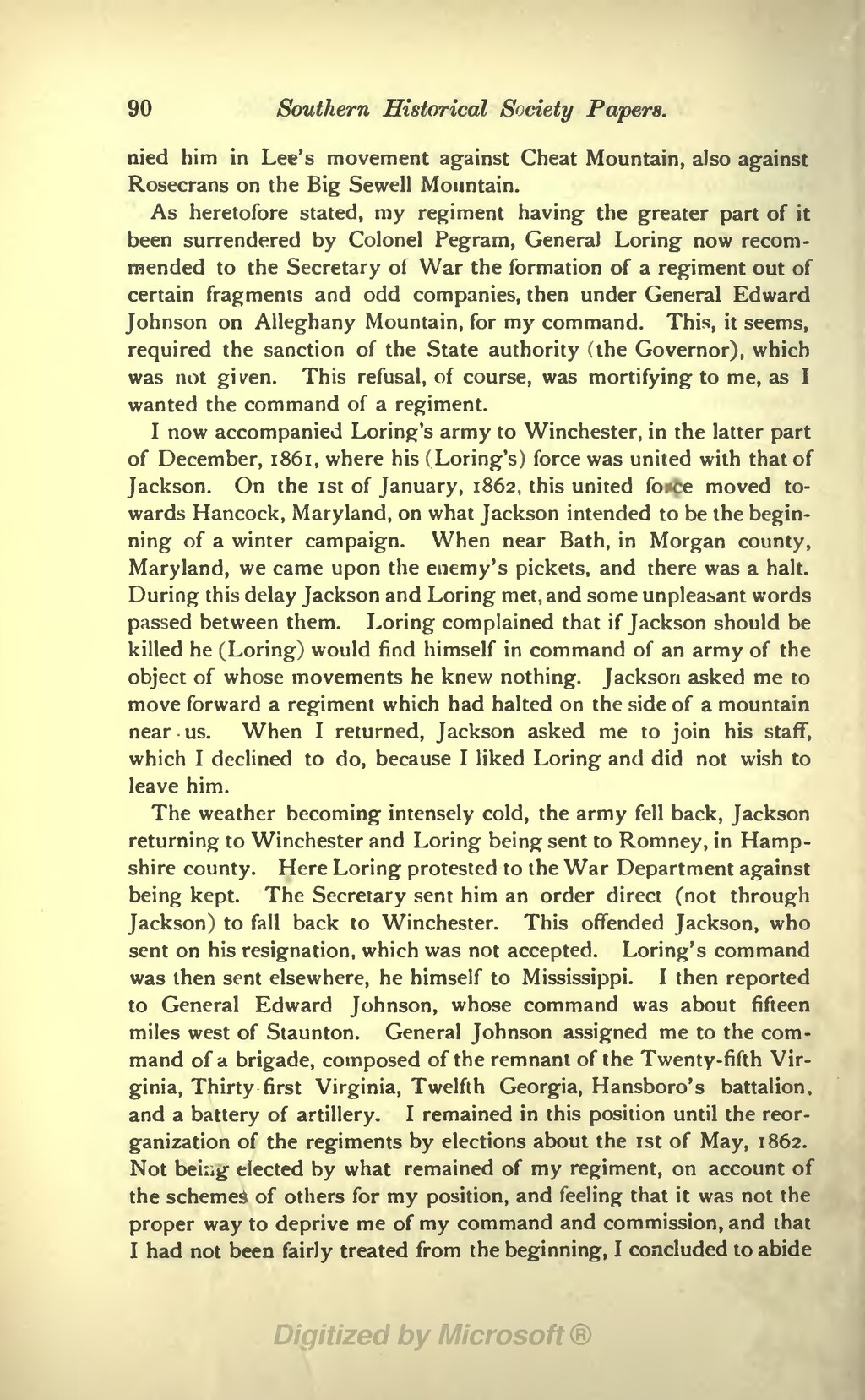90 Southern Historical Society Papers.
nied him in Lee's movement against Cheat Mountain, also against Rosecrans on the Big Sewell Mountain.
As heretofore stated, my regiment having the greater part of it been surrendered by Colonel Pegram, General Loring now recom- mended to the Secretary of War the formation of a regiment out of certain fragments and odd companies, then under General Edward Johnson on Alleghany Mountain, for my command. This, it seems, required the sanction of the State authority (the Governor), which was not given. This refusal, of course, was mortifying to me, as I wanted the command of a regiment.
I now accompanied Loring's army to Winchester, in the latter part of December, 1861, where his (Loring's) force was united with that of Jackson. On the ist of January, 1862, this united fonte moved to- wards Hancock, Maryland, on what Jackson intended to be the begin- ning of a winter campaign. When near Bath, in Morgan county, Maryland, we came upon the enemy's pickets, and there was a halt. During this delay Jackson and Loring met, and some unpleasant words passed between them. Loring complained that if Jackson should be killed he (Loring) would find himself in command of an army of the object of whose movements he knew nothing. Jackson asked me to move forward a regiment which had halted on the side of a mountain near. us. When I returned, Jackson asked me to join his staff, which I declined to do, because I liked Loring and did not wish to leave him.
The weather becoming intensely cold, the army fell back, Jackson returning to Winchester and Loring being sent to Romney, in Hamp- shire county. Here Loring protested to the War Department against being kept. The Secretary sent him an order direct (not through Jackson) to fall back to Winchester. This offended Jackson, who sent on his resignation, which was not accepted. Loring's command was then sent elsewhere, he himself to Mississippi. I then reported to General Edward Johnson, whose command was about fifteen miles west of Staunton. General Johnson assigned me to the com- mand of a brigade, composed of the remnant of the Twenty-fifth Vir- ginia, Thirty first Virginia, Twelfth Georgia, Hansboro's battalion, and a battery of artillery. I remained in this position until the reor- ganization of the regiments by elections about the ist of May, 1862. Not beiiig elected by what remained of my regiment, on account of the schemes of others for my position, and feeling that it was not the proper way to deprive me of my command and commission, and that I had not been fairly treated from the beginning, I concluded to abide
